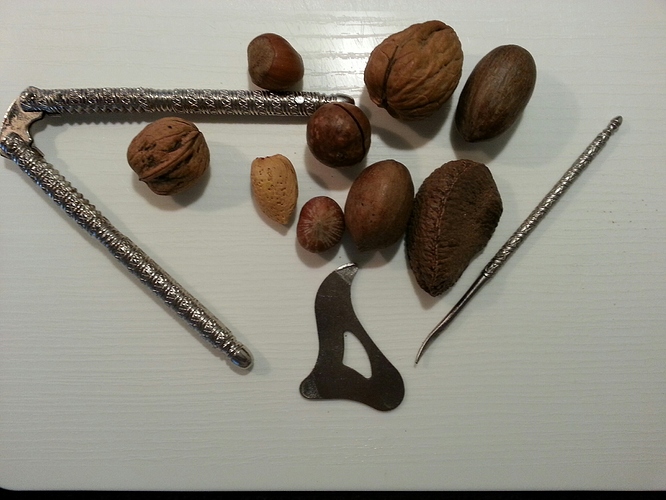Satiety signals are controlled by a variety of variables.
One example is signal transit time. As in some people get a very fast message delivered, while for others (like me), the message comes a bit of time later (and meanwhile, at the risk of eating too much). If I have a bowl of nuts, I can eat handfuls of the stuff, before getting the satiety signal. If instead I eat nuts in their shells, it slows me down, and I eat much smaller amount because I get the satiety signal before eating too much. Here is an example of how I eat nuts:
I don’t restrict at all. I eat all the nuts that I want, until satiety. And because I get the satiety signal, I stop very easily. No macro counting.
Another example of a variable that influences my satiety is that I cannot eat sweet-tasting (dessert-like) foods. They stimulate insulin for me, which provokes hunger. If I eat savory stuff instead, and stay away from sweet fat bombs, artificial sugar sweeteners, keto candies, fruits (like keto-friendly berries) and all the keto-friendly desserts, I don’t wake up the hunger monster from its deep slumber.
The same goes with vegetables. When I eat closer to a zero-carb meal, I feel less hungry much faster. As soon as I introduce vegetables, I am compelled to eat more.
And of course, I have learned to restrict my eating to an eating window, and not constantly nibble all day long. If I eat breakfast, snack, lunch, snack, dinner, snack…it will not matter how much I eat…my insulin will be stimulated, and I will feel hungry all day long. If I eat only one or two meals a day, with zero snacks in between, my hunger levels drop to zero and I naturally eat very little food.
I find that with keto way of eating, as well as fasting, I have learned to “listen” to my body, and learned about these quirks. I’m grateful when I discover these natural built-in mechanisms that I have. I’d rather eat to satiety, rather than eat to a Myfitnesspal tracking app (which never worked anyway, because the macros were based on CICO anyway).
So, this is how I learned to eat to satiety. And this is why I spend many hours each week, sharing recipes on this forum. They tend to be “whole foods” type recipes, and I seldomly post dessert-like recipes. I’m certainly not poo-pooing the keto dessert recipes, as there are many people who can eat them and be successful with keto. I just know what works for me, and I hope to share those tips with others who are on the same journey as I am.
So, I will finalize with this recommendation: learn to listen to your body. Perhaps it would be helpful to journal the way you feel after eating different foods or different types of meals. Does oily fish prevent you from eating more, or does it make you more hungry? What about bacon - how much can you eat without feeling hungry? If you combine cheese with your meals, does it make you eat more or less? How about adding vegetables to your meals - does it compel you to eat more or less? How do you feel after eating a sweet, keto-friendly dessert - satisfied or hungry? What about sugar-free drinks like Coke Zero, La Croix or sugar-free Torani syrup in coffee? Do you feel hungry when you have been nibbling on snacks all day? When you learn these quirks about your body, you gain that control that you are seeking, and will no longer need to track absolutely everything in a smartphone app. And, more importantly…YOU SEE RESULTS! There is nothing more frustrating than meticulously tracking all your macros, and not seeing the results you aim for. It took me a long time to understand what Phinney and Fung and all the others kept recommending. I too was chasing “hard metrics” on smartphone apps. But, when I instead took their advice to learn to listen to my body, I finally got the results I was striving for.
So, this is why the recommendation is tracking carbs and protein (when beginning your keto journey) so you get a good understanding of what 20 grams carbs is, as well as 1 gram per kg LBM. When you become a veteran at eating keto levels of carb and protein, then you don’t have to meticulously track any more. And just keep on loading lots of fat into the meals, and eat fat to satiety. And of course…listen to your body on how it feels after eating.
I hope this helps 



